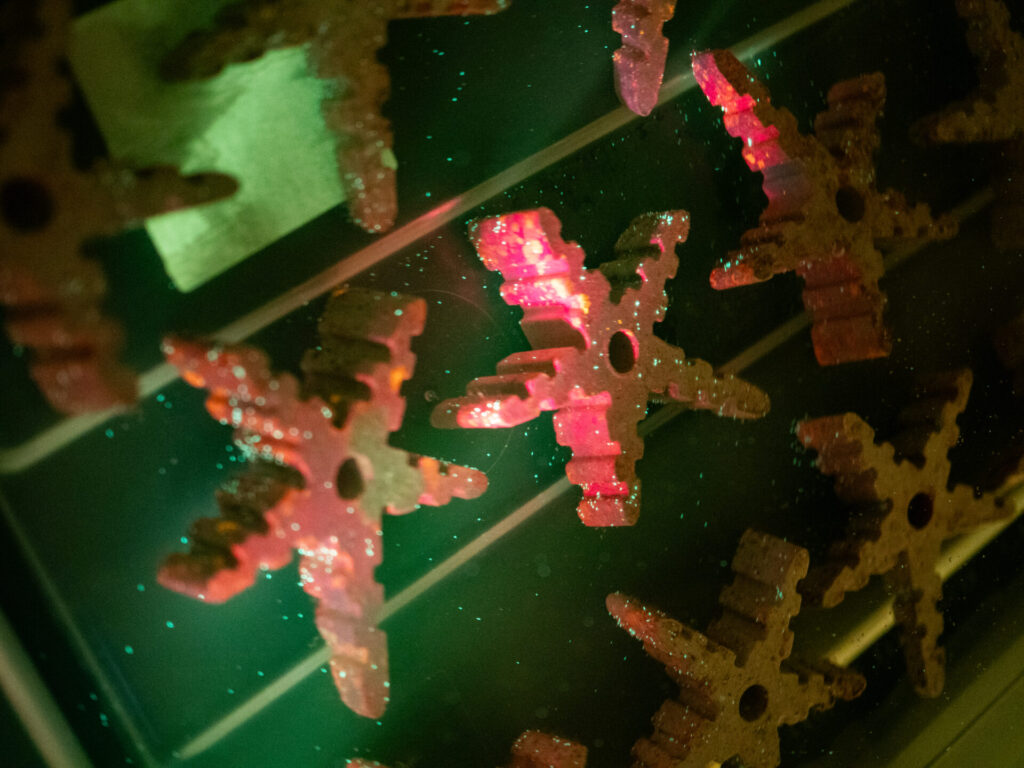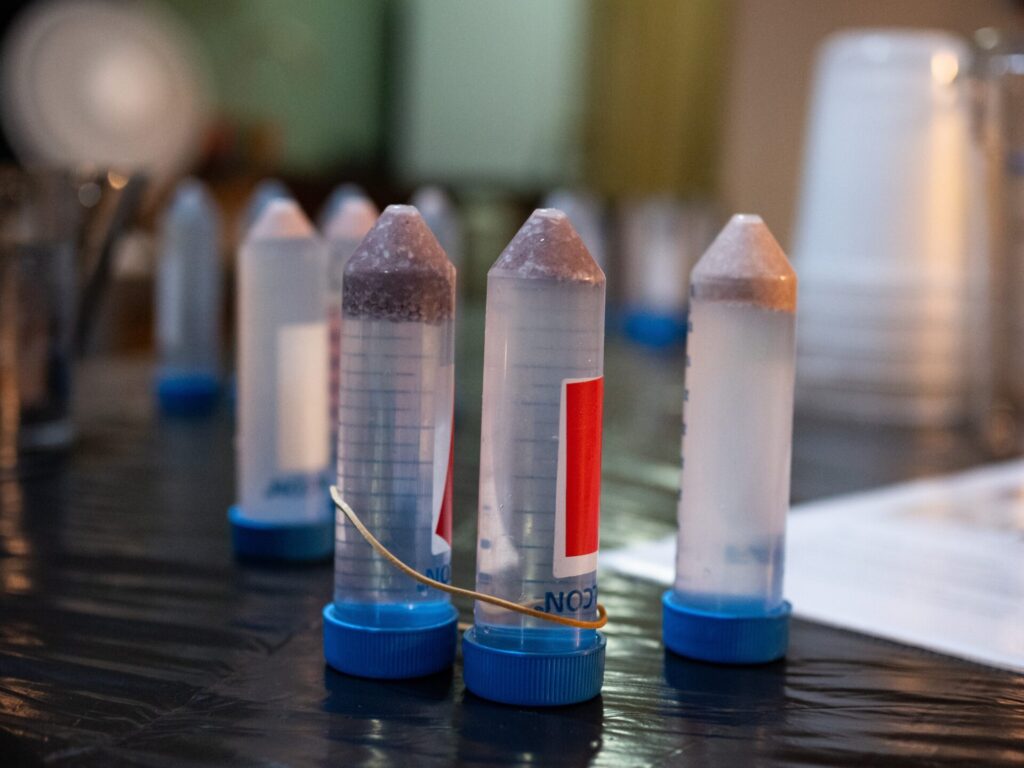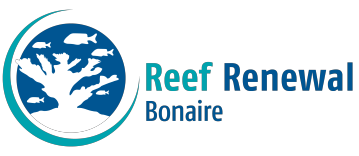Reef Renewal Foundation Bonaire successfully produced over 236,000 larvae after observing a grooved brain coral spawning event across four monitoring sites in Bonaire. As coral populations continue to decline across the Caribbean, facilitating sexual reproduction is a vital tool to boost resilience and preserve genetic diversity. This work is made possible through the support of Openbaar Lichaam Bonaire (OLB) and the Dutch Ministry of Agriculture, Fisheries, Food Security and Nature (LVVN).
27 May 2025
(Bonaire, Dutch Caribbean) — In a major success for coral restoration on Bonaire, Reef Renewal Foundation Bonaire (RRFB) observed grooved brain coral spawning on Friday night and collected eggs and sperm from 14 colonies across four sites. From these, the team produced over 236,000 genetically unique coral larvae in a temporary land-based lab setup.
This event comes as a glimmer of hope after two years of unprecedented coral bleaching and SCTLD (Stony Coral Tissue Loss Disease) pushed many coral species to the brink. With fewer healthy colonies remaining — and many now too far apart to reproduce naturally — the chances of fertilization in the wild have dropped dramatically.

“Every spawning event is a critical and unique opportunity to boost the genetic diversity of Bonaire’s declining coral populations” says Sanne Tuijten, RRFB’s Science Officer. “And with that diversity comes greater resilience.”
– Sanne Tuijten, RRFB Science Officer
Active restoration plays a vital role in reversing coral reef decline, strengthening struggling populations by boosting genetic diversity and rebuilding abundance. In fact, research shows that young corals produced through this method show high tolerance to heat stress.1 RRFB’s breeding results are highly encouraging, showing that vulnerable coral populations still have the capacity to reproduce — and that targeted breeding can greatly amplify year-round restoration efforts and significantly accelerate natural recovery.
This month’s spawning event is the program’s first of the year, with more work planned for endangered species including pillar, elkhorn, staghorn, and other brain corals. RRFB’s coral breeding program has been developed in close collaboration with SECORE International. It’s made possible with support from Openbaar Lichaam Bonaire (OLB) and the Dutch Ministry of Agriculture, Fisheries, Food Quality, and Nature (LVVN) through the Nos ta Biba di Naturalesa project.


About Reef Renewal Foundation Bonaire
Reef Renewal Foundation Bonaire is a non-profit organization focused on the protection and restoration of Bonaire’s biodiverse coral reefs. In collaboration with research partners and regional practitioners, RRFB uses researched-based techniques to increase the abundance and genetic diversity of vulnerable coral populations in Bonaire. Today, with the help of 16 partner dive operators around the island and a dedicated team of volunteers, RRFB has outplanted over 70,000 corals back to the reef, covering an area of over 13,000 square meters.
To learn how to get involved or lend support, please visit www.reefrenewalbonaire.org or email info@reefrenewalbonaire.org
Photos and Captions
Please contact caitie@reefrenewalbonaire.org to request high-resolution versions of all images

